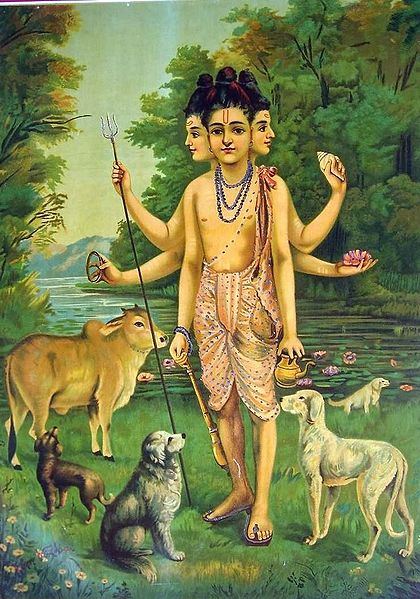Here’s a secret: I am partial to reading books in which the relationship between man and dog forms a part of the plot. I’m not sure if this is because I grew up on a healthy diet of Enid Blytons with Buster snapping and Timmy woofing and Loony dancing on the kitchen mat, or because my first real friends in this world were brown eyed mongrels sheltering in the garden of our railway bungalows or begging for waste chapatis at the outhouse door. Whatsoever may be the cause, an ill fed stray haunting the rubbish heap for left overs still brings a lump to my throat.
Lately there are fewer dogs on the city streets. Sometimes I gather rice and bones and have to look for hours before I can spot a decently starving one. The ones that move in packs are huge fellows, battle scarred veterans of years on the streets, worldly wise and grave who disdain my offers. Wasted puppies have disappeared — perhaps they have all been crushed by the cruelties of urban life and its shrinking spaces. So too has human tolerance — in my childhood the shanty dwellers near my grandmother’s home shared their meagre meals with a brown spotted mutt but the shanties are now pucca houses with television and computer and the mutt is no longer to be seen.
J.M. Coetzee’s Disgrace is the obvious choice for dogs as a metaphor for the unaccountable sadness of modern life, but so are lesser known classics — The Kingdom by the Sea by Robert Westall with its wonderful evocation of World War II in which a boy and dog stay together to survive, Jim Kjelgaard’s A Nose for Trouble and surprisingly Kiran Desai’s The Inheritance of Loss in which Mutt the dog suffers a bleak end, befitting the general melancholy of Kalimpong split by the Gorkhaland agitation.

Peter Singer’s Animal Liberation has been one of the most influential texts in the world of animal ethics but another one which is no less informative and relevant is Hiranmay Karlekar’s Savage Humans and Stray Dogs: A Study in Aggression. Karlekar, a senior journalist, writer and thinker, who was in college with my parents, has done much to promote awareness of aggression against animals through his columns.
Hinduism, in its general inclusivity, has Bhairav, a manifestation of Shiva in his terrible form, with a dog as his vahana or vehicle. On the left is a favourite representation of mine: the God as a wanderer surrounded by a host of defenceless animals. I like to think of a day when man realises that he is, after all, a non-human animal. That and nothing more. Perhaps even less!
Reblogged this on Voices in the Sky.
LikeLike
A beautifully written and well-researched piece. Hope to find more such write-ups on human-animal relationships.
LikeLike
I think animals, especially pets, are beloved parts of our life. Some consider them to be part of the family. Thank you for this article. Smiles, Robin
LikeLike